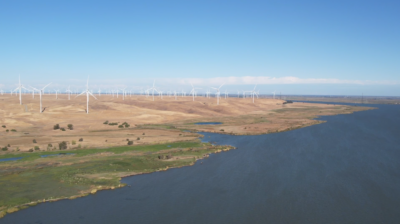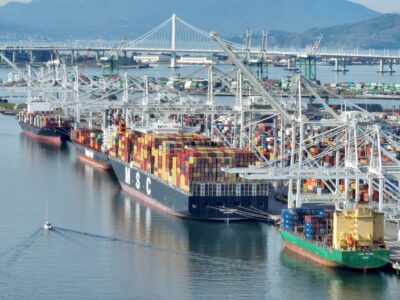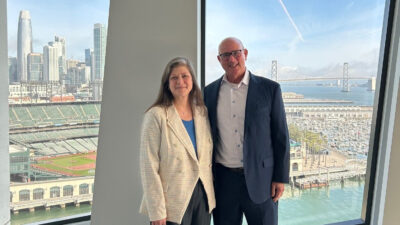Bay Area Council Poll: Resounding Support for Upgrading Key Communications, Energy Networks
As more and more people come to rely heavily on mobile and broadband technologies for a wide range of everyday needs – from banking to healthcare — an overwhelming number of Bay Area residents want to be sure the critical infrastructure needed to support these services are in place, according to the 2014 Bay Area Council Poll. Residents by a 76 percent margin support allowing communications companies to expand and upgrade the antennae, towers and fiber-optic cables they use to deliver mobile and broadband services.
For complete results, visit 2014 Bay Area Council Poll.
Residents also agree there is no less urgency for modernizing our outdated energy networks, particularly as climate change, drought and the emergence of new technology-driven products and services are dramatically altering how we generate, deliver and consume energy. The poll found 74 percent of residents think the Bay Area must modernize its energy systems to keep the economy growing. And a resounding 78 percent of residents prioritize making these investments now.
“The Bay Area is the world’s innovation leader and residents understand we need modern communications and energy networks to sustain that dominance,” said Jim Wunderman, President and CEO of the Bay Area Council. “Unless we prioritize bringing our communications and energy networks into the 21st Century, we risk losing a generation of economic and technological advancement and ceding our innovation-leading position to our competitors.”
The findings come at a time when new technology companies are scrambling for position in the heated mobile marketplace, and when big data and the almost-viral spread of digital products and services into every part of people’s lives requires faster, bigger and more reliable communications networks. The results also come as state and federal officials are increasingly focused on developing the broader policies that are necessary to allow and encourage the private sector to invest in upgrades.
Bay Area residents appear to understand what is at stake, with a resounding 74 percent saying it’s time to drop opposition to upgrading and modernizing communications systems to ensure faster mobile and Internet services. That makes sense considering 66 percent of residents said they rely on a smartphone daily for a variety of tasks, 42 percent say they don’t even use a landline and 20 percent of those that do have a landline today say they won’t have one within five years.
And while 40 percent of residents harbor concerns about health impacts from cell phone antennas, a strong majority of 58 percent say local governments shouldn’t let those objections block the approval of new equipment.
Innovative pricing methods for energy consumption drew significant support among residents. The poll found 62 percent of residents across the region support peak-hour pricing to help reduce demand, and 70 percent said they would sign up for variable pricing to reduce their own energy bills by shifting energy-intensive activities to different times of the day.
The 2014 Bay Area Council Poll, which was conducted by Oakland-based public opinion research firm EMC Research, surveyed more than 1,000 residents in an online poll about a range of issues related to economic growth, housing and transportation, early childhood education, energy and communications, and healthcare. The results are being released over five days beginning May 27.





